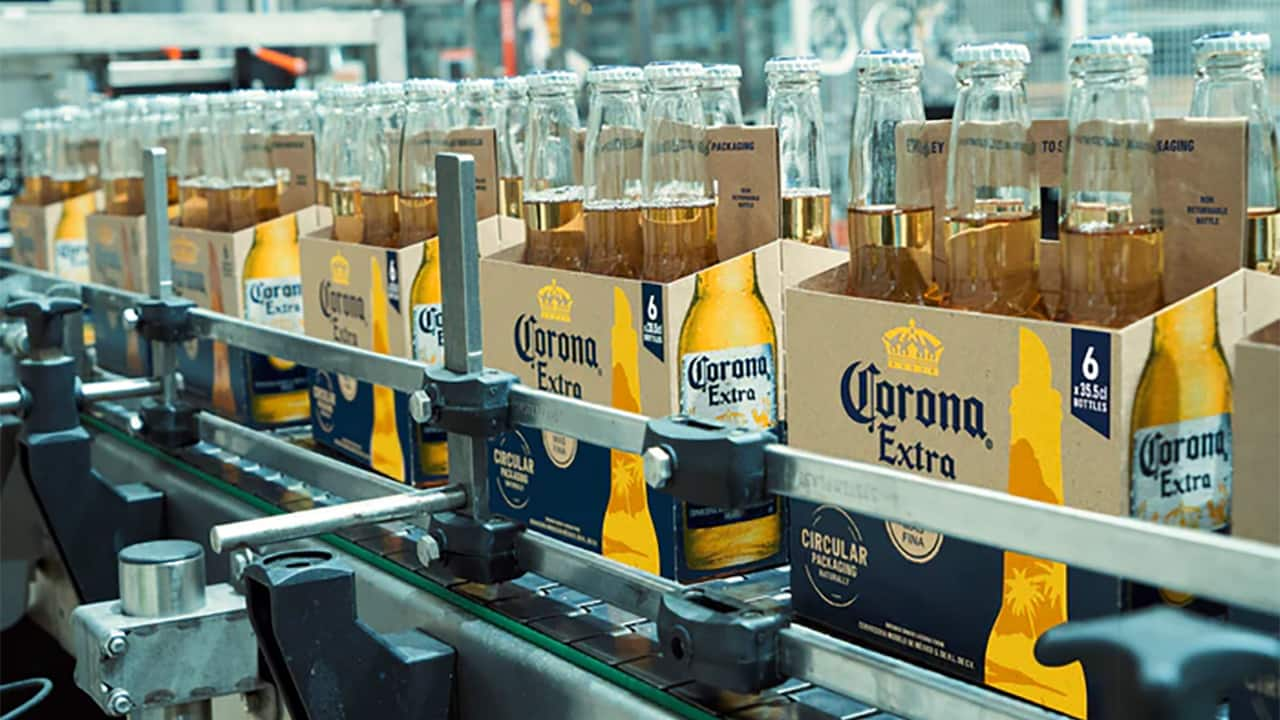


To prevent this catastrophic loss, the United Nation's Sustainable Development Goal (SDG) number 12 has been defined with an agenda to ensure sustainable consumption and production patterns. By 2030, the aim is to halve food waste per capita, at both retail and consumer levels, as well as reduce food losses in production and supply chains, which includes post-harvest losses.

Beer and food waste
When it comes to beer, the third most popular drink in the world, can barley waste be effectively repurposed? In 2019, 1.91 billion hector litres of beer were produced. The by-products of beer production comprise spent grain, malt waste and barley straw.
And the leading global brewer, AB InBev has shown how we can reuse these products effectively. One of the projects the brewer has implemented can process the spent grain into food with nutritious value. While previously the spent grains were sold as animal feed—an intervention by Dr Jorge Gil-Martinez, Biochemical PhD and Manager at AB InBev's Global Innovation and Technology Center—the spent grains are converted into a fibre and protein shake through innovative technology called Canvas. This plant-based fermented barley beverage is sustainably produced. Rich with plant proteins and essential fats, it is the perfect beverage to consume for a healthy lifestyle. This process also contributes to the company's circular economy goals since Canvas represents a reduction in CO2 and carbon emissions as an alternative to animal-based protein rich food options.
Sustainable packaging from barley straw waste
In the UK, Budweiser, Bud Light, Stella Artois and Beck's are packaged in 100% recyclable wraps and the innovative KeelClip, recyclable paperboard packaging, which has created a lighter weight pack.
Moving a step ahead, another innovative solution comes from upcycling barley straw waste and biodegradable fibre waste product to tackle unsustainable packaging. Six-pack plastic beer rings have been notorious for contributing to plastic pollution in the ocean and endangering marine life. AB InBev's iconic beer brand Corona has launched a pilot project with Parley for the Oceans to convert plant-based biodegradable fibres—along with other compostable materials—from breweries to produce sustainable six-pack rings, replacing plastic. Moulding the waste into biodegradable pulp and paper, the company is creating rings that are not detrimental to wildlife.
By reusing crop residue aka barley straw, AB InBev in collaboration with sustainable packaging start-up Craste is converting waste to value. A pilot project has been initiated to convert barley straw waste to paper which can be utilised to make six packs for beer, a solution which will address the waste generation problem and also empower farmers by giving them an additional source of income. Treating barley waste and converting it into packaging will help towards climate action, by preventing ~1460 kilogram of CO2 being released in the earth's atmosphere for each tonne of straw burnt because of crop residue burning. In India, this is responsible for 25% of air pollution in North India during winter.
Innovative sustainability solutions
One of AB InBev's 2025 Sustainability Goals focuses on circular economy. The goal is to ensure that the products are 100% returnable or made from a majority of recycled content. To reach this goal, AB InBev has collaborated with key partners, such as the Glass Recycling Coalition, the Closed Loop Fund and the Ellen MacArthur Foundation.
Fostering a culture of innovation, AB InBev also launched the 100+ Accelerator program back in 2018, to mobilize the world's brightest minds to come up with creative solutions to tackle some of the most pressing environmental challenges, including driving recycling and circular packaging. In India, the company has launched the Innovation Hub, which has attracted great participation from the start-up community, to ideate and deploy sustainable packaging solutions one of which is Recube. It utilises spent grains to make single use biodegradable cutlery which can replace plastic cutlery and help eliminate plastic waste. These out-of-the-box innovations improve the overall customer experience and are a step towards making an impact to reduce plastic pollution, with an estimated 100 million tons floating in our oceans currently.
Reference links:
https://www.unep.org/thinkeatsave/get-informed/worldwide-food-waste
http://www.fao.org/platform-food-loss-waste/food-loss/food-loss-measurement/en/
https://www.reuters.com/article/india-pollution-idUSKCN26D1XJ
https://www.3blmedia.com/News/AB-InBev-Eliminates-Plastic-Rings-UK
https://www.businesswire.com/news/home/20181127005152/en/Corona-Launches-Plastic-Free-Pack-Rings
https://www.ecowatch.com/plastic-waste-ban-un-oceans-2650065625.html?rebelltitem=1#rebelltitem1

